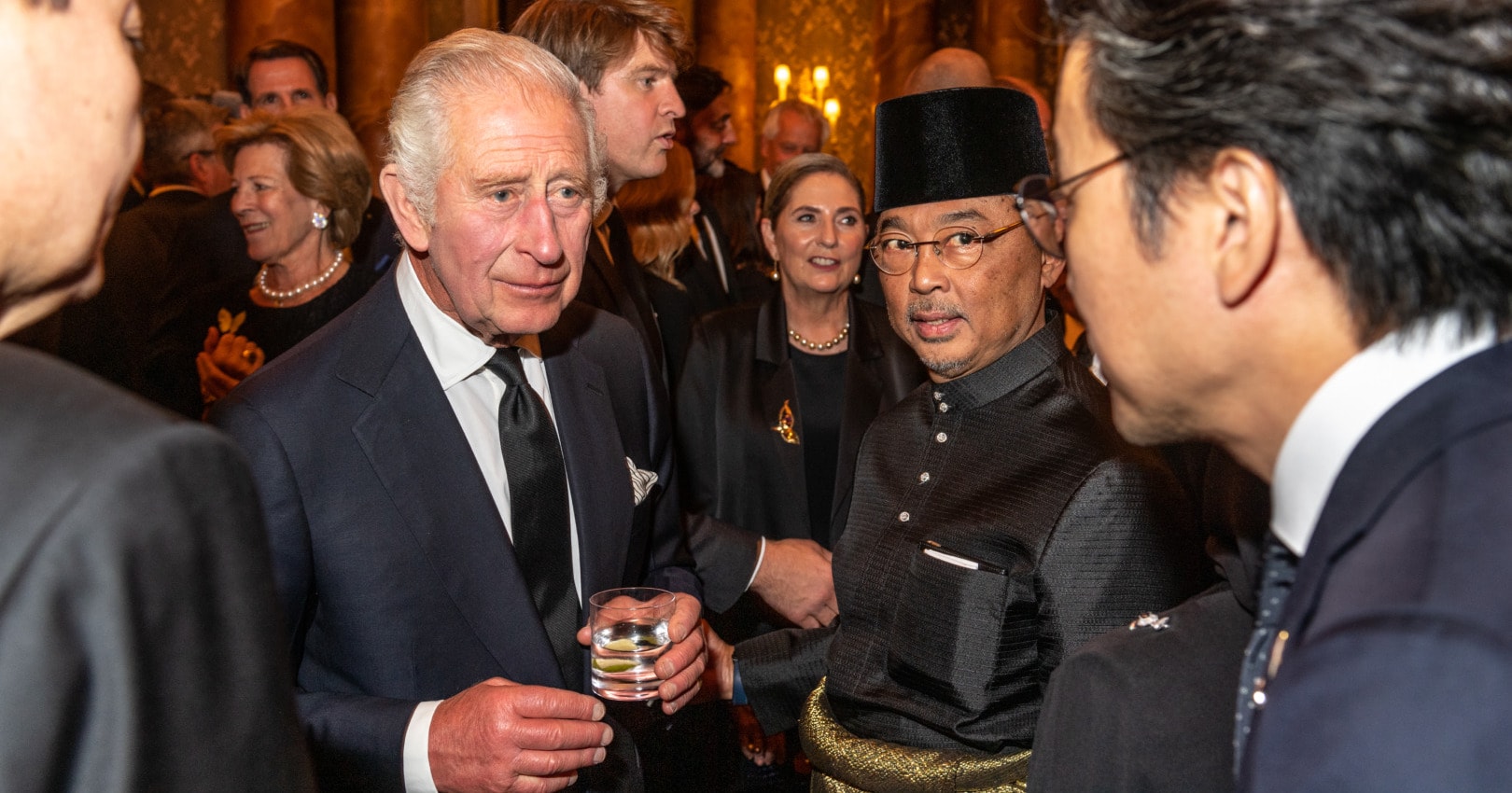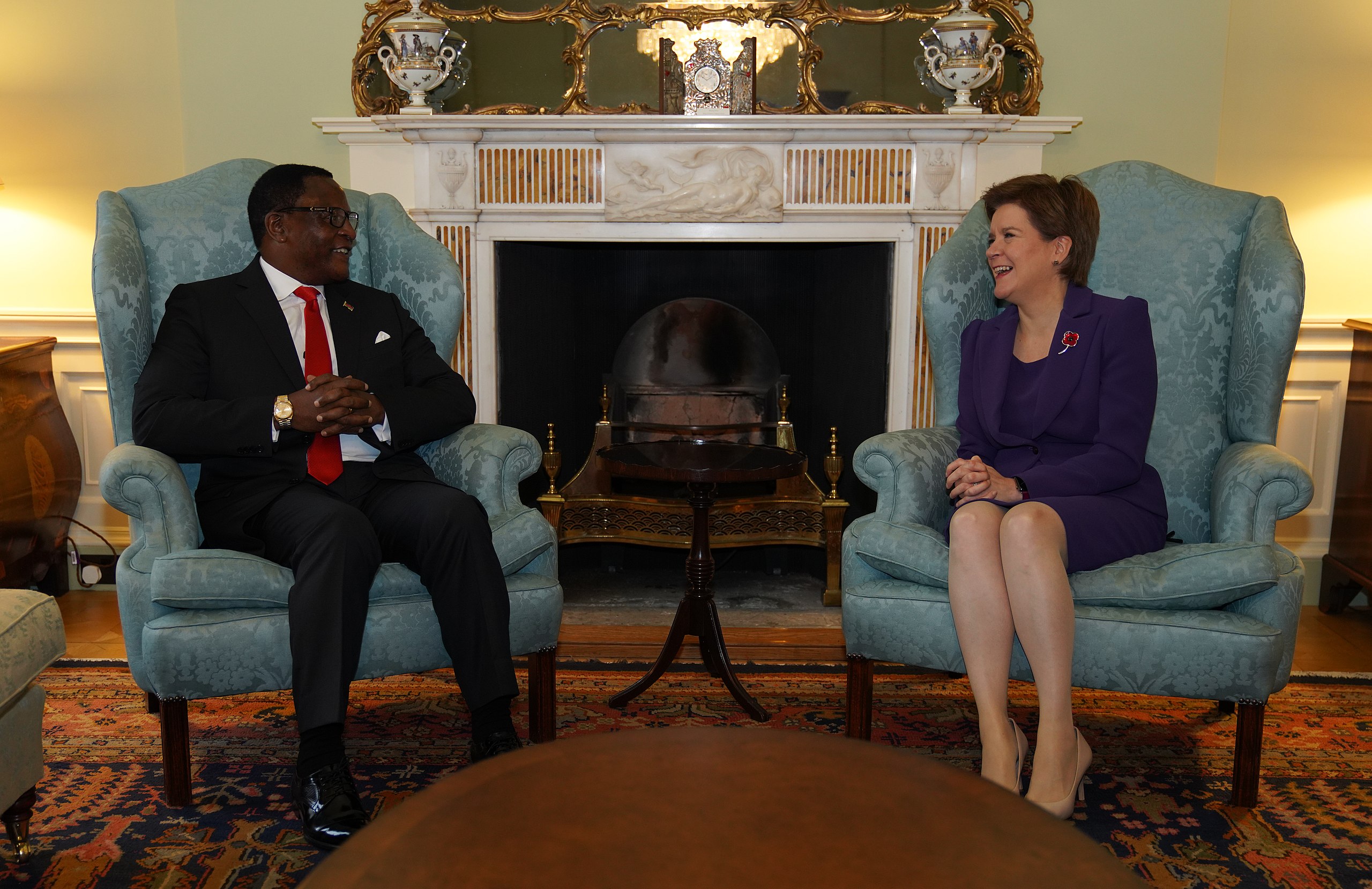The UK’s new Prime Minister, Rishi Sunak, has finished his first week in office. In the wake of Liz Truss’ “Attack on Nature” there has been much speculation about how environmental policy will evolve in the UK under this new premiership. Will Sunak reverse Truss’ measures or will he continue her assault? The first answer to this question came when Sunak announced that he will not attend COP 27, even though other major world leaders will be present, including US President Joe Biden.
Does this indicate that Sunak will follow in Truss’ footsteps? To find out, let’s look at how his new government has dealt with the environment, climate change, and COP 27:
A Strong Start
On Tuesday, in his first speech as Prime Minister from the steps of 10 Downing Street, Rishi Sunak said that he intends to fix Liz Truss’ mistakes and deliver on the promises set out by the Conservative Party’s 2019 manifesto.
The manifesto is a 59-page document with the slogan “Get Brexit Done, Unleash Britain’s Potential.” It contains the original fracking moratorium that Truss removed.
On Wednesday, Rishi Sunak took to the House of Commons for his first round of Questions to the Prime Minister (PMQs). International eyes were on the UK’s youngest ever prime minister as he faced MPs from both his own party and the opposition.
The PMQs are simply an opportunity for the prime minister to answer questions from the House of Commons; they take place at noon every Wednesday when the House of Commons is sitting.
At the PMQs, MP Caroline Lucas, two-time former leader of the Green Party of England and Wales, asked Rishi Sunak if his pledge to stand by the Tories’ 2019 Manifesto meant that he plans to reverse Truss’ repeal of the fracking ban.
The prime minister responded:
“I’ve already said that I stand by the manifesto on that. But what I would say is that I’m proud that this government has passed the landmark Environment Act, putting more protection for the natural environment than we’ve ever had, with a clear plan to deliver. I can give the honourable lady my commitment that we will deliver on all those ambitions. We will deliver on what we said at Cop [Cop26] because we care deeply about passing our children an environment in a better state than we found it ourselves.” (bolding added)
The main targets agreed at COP 26 were to reach global net zero by 2050 and to keep the upper limit of 1.5 °C of warming within reach.
This statement elicited a sigh of relief from environmentalists across the country. However, the reinstatement of the fracking ban was an easy opportunity for Sunak to score political points across the aisle.
Truss’ desire to reinstate fracking was one of the most deeply unpopular moves of her government; 40 MPs from her own party refused to vote against the opposition’s challenge over fracking.
This is more shocking because a three-line whip was issued for the vote, which means a strict instruction to attend and vote according to the party’s position. The breach of this instruction, including a refusal to vote, is equivalent to rebellion and can cause an MP to be thrown out of the parliamentary party.
Sunak, in his first week, saw the opportunity to reverse one of Truss’ most universally opposed measures and took it. Does this mean that he will prioritise the environment throughout the remainder of his premiership?
Sunak’s cabinet reshuffling and demotion of key climate ministers
Although Sunak confirmed his commitment to reaching the targets set out at COP 26, other actions taken in his first week suggest otherwise.
The UK held the presidency for COP 26, which took place in Glasgow. Alok Sharma, the MP who served as president for COP 26, was a cabinet member under Boris Johnson and Liz Truss and served as a key climate minister. During the Conservative Party Leadership Campaign in July, he threatened to resign if the winning candidate did not remain committed to the UK’s net zero targets.
This week, Sunak removed Sharma from his cabinet.
Utterly shameful for Rishi Sunak to remove seat at cabinet table for COP26 President Alok Sharma – just weeks before one of the most important global climate summits in a generation at #COP27 in Egypt. If the new PM cares about climate, he's got a very strange way of showing it pic.twitter.com/PtGOtugaKY
— Caroline Lucas (@CarolineLucas) October 25, 2022
Sunak has chosen to keep another MP, Graham Stuart, in the same position of Climate Minister that he occupied under Truss, but he demoted the position itself, revoking the climate minister’s right to attend cabinet.
I am delighted to have been reappointed as Minister of State for Climate by the PM, @RishiSunak, and look forward to working with @grantshapps to deliver net zero in the way which best boosts jobs and prosperity.
— Graham Stuart MP (@grahamstuart) October 27, 2022
It remains to be seen if Sunak’s choice to demote two key climate ministers reflects the position of the environment on his government’s agenda.
Who will represent the UK at COP 27 in the absence of Sunak?
The 27th session of the Conference of the Parties (COP 27) to the UNFCCC, which will take place in Sharm El-Sheikh, Egypt from 6-18 November, is just around the corner.
Shortly after removing the COP 26 president from his cabinet, Sunak declined an invitation to attend COP 27 himself.
A spokeswoman for No. 10 Downing Street has explained Sunak’s decision not to attend, saying:
“It is a recognition of other pressing domestic commitments, not least preparations for the autumn budget. We remain committed to net zero and to leading international and domestic action to tackle climate change. The U.K. is forging ahead of many other countries on net zero.” (bolding added)
The spokeswoman continued by reaffirming Downing Street’s commitment to reaching the targets agreed in Glasgow last year. Sunak attended COP26 in Glasgow last year with then-Prime Minister Boris Johnson.
🌎 197 leaders
🗓️ 13 days
📜 1 agreementNearly one year ago, countries came together at #COP26 to forge the #GlasgowClimatePact.
We can't afford to delay action to keep 1.5°C alive.
At #COP27, the promises made in Glasgow must be promises kept.
— COP26 (@COP26) October 28, 2022
However, the opposition feel this choice reflects poorly on the UK. Labour’s shadow climate change secretary, Ed Miliband said:
“This is a massive failure of climate leadership. We were the COP 26 hosts, and now the UK Prime Minister isn’t even bothering to turn up to COP 27. What Rishi Sunak obviously fails to understand is that tackling the climate crisis isn’t just about our reputation and standing abroad, but the opportunities for lower bills, jobs, and energy security it can deliver at home.”
Originally, Liz Truss had intended to represent the UK at the event, although she received criticism for requesting that King Charles, himself an outspoken environmental activist, not attend.
Sunak has followed Truss’ lead by also requesting that King Charles not attend COP 27. According to Downing Street, it was “unanimously agreed” by Buckingham Palace and the government that the king would not attend.
Downing Street also claimed that the absence of Sunak and the king had no bearing on the UK’s commitment to environmental issues. Three cabinet ministers – the foreign, business and environment secretaries – will attend the summit. Alok Sharma, president of COP 26, will also be a member of the UK delegation.
However, the environment secretary, Thérèse Coffey, has let slip how important Sunak’s cabinet considers the upcoming summit. When questioned why the prime minister was not attending, she stated:
“The politically big, significant things happen every five years … while at the same time, of course, the UK continues to show global leadership, as opposed to just a gathering of people in Egypt.” (bolding added)
COP 27 has been reduced to “just a gathering of people in Egypt”, notwithstanding the fact that the gathering will include US President Biden.
Related Articles: Can the UK’s New Prime Minister Reverse Truss’ ‘Attack on Nature’? | COP26: Success or Failure? | Cities and Climate Finance: Global Leaders Call for Less Interpreting, More Action
Coffey had also said earlier that the king would choose whether or not to attend. However, other reports say that King Charles was “champing at the bit” to go and disappointed by the government’s stance. Even beyond his desire to be present for talks concerning worldwide climate pressures, it would have been an opportunity for the king to meet the US President.
It also would have been a good opportunity for the UK’s new prime minister to meet the US president. Beyond a failure of climate leadership, Sunak’s absence indicates a failure to understand the diplomatic implications of the gathering and a fundamental lack of “ear” for the international concert of nations.
Scotland to make a point on the world stage at COP 27
By contrast, Nicola Sturgeon, the first minister of the Scottish Parliament, is in tune with this international concert and its norms. She was quick to announce that she will attend COP 27 in the wake of the news that Sunak will not.
The First Minister has been described as “a fixture of COP26”, which took place in Scotland, a devolved nation within the UK whose governing party, the SNP, is currently campaigning for independence.
A spokesman on behalf of the first minister said the choice was made due to “the vital importance of governments working together to tackle climate change.”
Considering the United States, another high-emitting nation within the developed world and a key ally to the UK, is sending its head of state, it is no surprise that Sturgeon felt it necessary for a UK head of state to make an appearance.
Nicola Sturgeon perhaps also sees the conference as a chance to make a point on the world stage about Scotland’s own work towards the targets laid out and agreed at COP 26.
Scotland has had a record-breaking year for production of renewable energy, and continues to increase its infrastructure capacity. If Scotland can promote itself as a soon-to-be self-sufficient net exporter of renewable energy, the case for Scottish independence will become more credible in the eyes of other international leaders.
By representing the UK on a global stage, Nicola Sturgeon now has the chance to demonstrate Scotland’s commitment to global cooperation, in stark contrast to England’s increasing lack of relevance on the world stage since Brexit.
On Thursday, The UN released a report warning that there is currently no “credible pathway” to limiting climate change to 1.5 °C. Most world leaders might be hard-pressed this week to find a more urgent problem facing their country.
Sunak’s choice to stay home reflects the UK’s continued shift of focus inwards. In the context of a global crisis like climate change, critics might be correct in labelling Sunak’s absence from COP 27 as irresponsible and short-sighted.
Editor’s Note: The opinions expressed here by the authors are their own, not those of Impakter.com — In the Featured Photo: Rishi Sunak answers questions in the House of Commons on Wednesday. Featured Photo Credit: Screenshot from Youtube.













